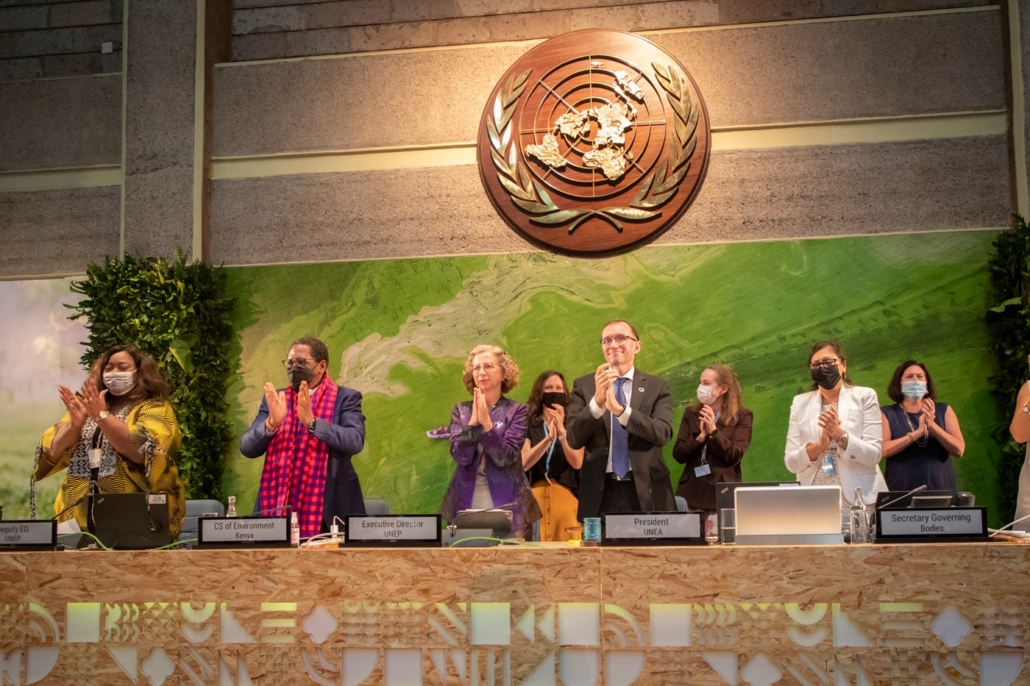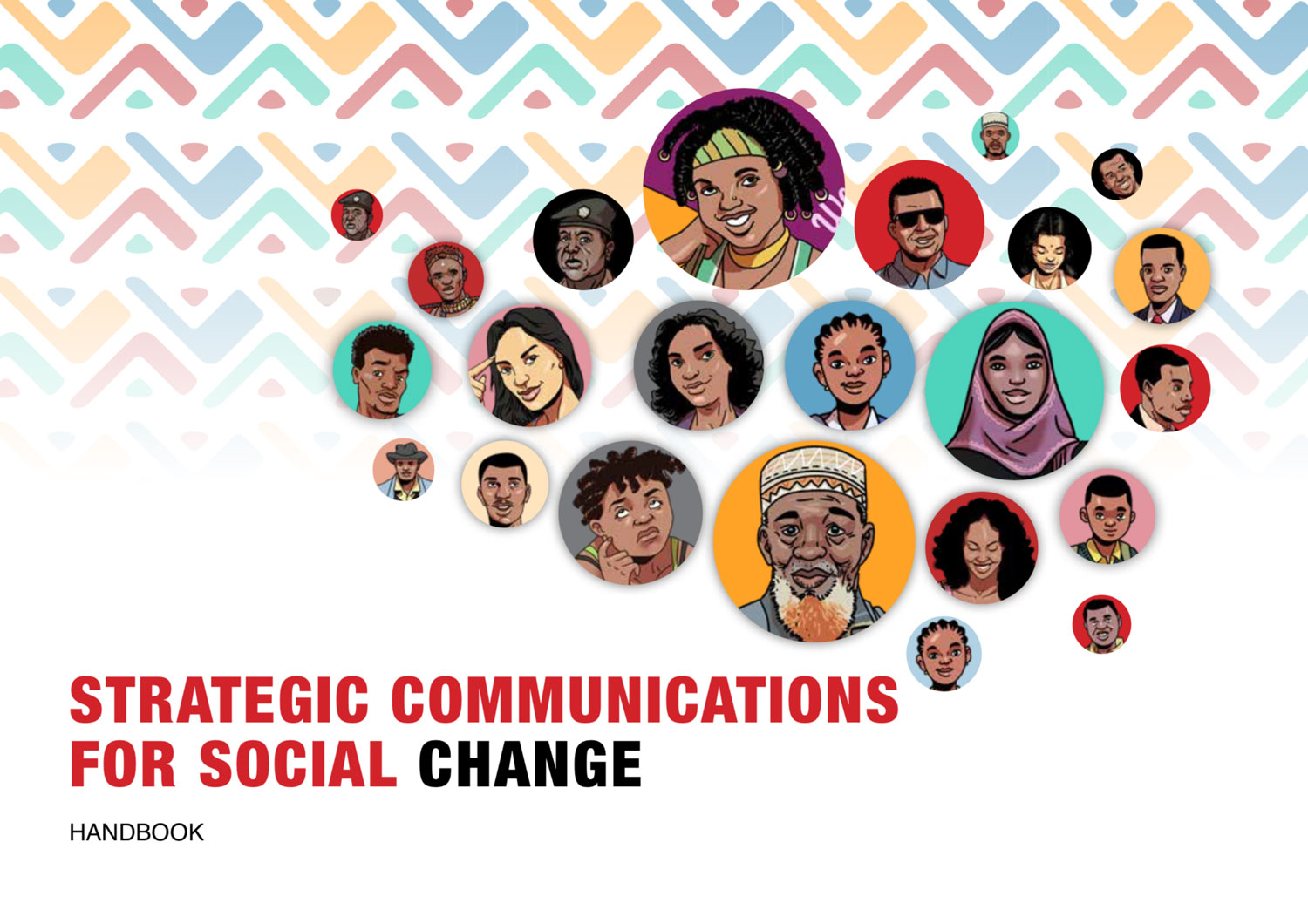Photo: Kenyan Minister for Environment and Forestry Keriako tobiko joined Inger Andersen, Executive Director UNEP and Espen Barth Eide, President of UNEA 5 during UNEA 5 deliberations. Source UNEP
By Fiona Imbali
Approximately 42 per cent of Kenya’s Gross Domestic Product comes from natural resource-related sectors such as agriculture, forestry, tourism, fishing and mining. These sectors are highly exposed to climate change. So our economy is a highly vulnerable economy.
Kenya has put in place several strategic actions against climate change over the years. But a lot more effort is needed to make a difference. As the world meets this week at the United Nations Environment Programme (UNEP), for the fifth session of the United Nations Environment Assembly (UNEA 5.2), and subsequently UNEPs 50th anniversary celebrations, Kenya – as the host country – has a chance to push for far reaching resolutions on climate action.
UNEPs Executive Director, Inger Andersen says that the discussions at UNEA, should put us back in track to live in harmony with nature: “UNEA deliberations will have decisions on plastic pollution, chemicals in agriculture, linkages between biodiversity and health as well as deploying nature to find solutions for SDGs. We need to begin to act on what science is telling us.”
The overall theme of the meeting is “Strengthening Actions for Nature to Achieve the Sustainable Development Goals”, a title only the UN could come up with. Let’s hope their actions are better than their words.
Every day, millions of tonnes of plastics are released into the environment, harming people and nature. UNEP reports that the world produces over 300 million tonnes of plastic waste annually, equivalent to the weight of the entire human population. This is estimated to reach 34 billion tonnes by 2050. While Kenya outlawed the manufacturing, sale and distribution of plastic carrier bags in 2017, its policy implementation is still work in progress. Despite it having reduced plastic littering, a lot more work is required to fully engage the country.
While a majority of the population is aware of pollution, many are still oblivious of the side effects of plastics for the entire eco-system. How can the government incentivise its citizens to deal with the plastic problem? Strategic communications is a big part of the answer, something we heard from the young people of Kenya yesterday at the Kenya Wildlife Conservancies Association (KWCA)Youth Forum.
Ms. Inger said that as a start : “we should implement and enforce existing laws and legislation, which already cover many pollutants. Over 100 countries have introduced legislation on air pollution. Yet people are still dying. Nations can follow up by translating the newly recognised human right to a healthy environment into national legislation that tackles all forms of pollution.”
Agriculture – the backbone of many economies in Sub-Saharan Africa – is part of the SDGs discussion. Long-term use of inorganic or chemical fertilisers has been blamed for increasing soil acidification and falling crop yields. Continuous use of inorganic fertilisers pollutes and denatures soil and water. Smallholder farmers suffer the greatest impact. While there is a lot of discussion on organic farming which is healthier, improves yields, enhances soil structure, and is environmentally sound in the context of a circular waste economy, our soils have been depleted due to poor farming practices and this solution may not be an immediate one for most smallholder farmers in the country.
Our current work with FSD-Kenya and the Apollo project showed us that 23 per cent of Sub-Saharan Africa’s Gross Domestic Product (GDP) comes from agriculture yet Africa’s full agricultural potential remains untapped. Smallholder farmers use less than an eighth of the average global fertiliser per unit and often leads to low yields. Kenya experiences low agricultural productivity due to reliance on erratic rains, limited use of inputs such as fertilisers and quality seeds, coupled with inefficient use of resources. These famers lack access to credit for quality inputs. Farmers will need to use more fertilisers and improved seeds for better yields. And our friends at FSD-Africa are leading the way on this with their work on sustainable development and more.
Climate change has intensified droughts and floods in Kenya. The country is currently facing a severe drought that has already had immense effects in North Eastern parts of the country. Since September 2021, these areas have received less than 30 per cent of their average rainfall. Droughts are not a new thing in this region but climate change has intensified these occurrences and they have become ever more frequent – every two to three years.
Strategic Communications should support Climate Action
Strategic Communications should support the country’s plan of action on climate change. With effective communications, private-public partnerships would understand their role and how they can support these strategies on climate action as well as act on critical points from UNEA.
Effective communications would inform business how they should act, what incentives they would get and how they can invest their resources to support
Climate action. Circular economies worldwide aim to ensure productive efficiency of nature while looking to demonstrate sustainability options and technology for the environment. With strategic communications added to the mix, the specific audiences that have the capacity and are motivated to act can be targeted with clear messages on how they can lead on climate. Kenya should incentivise its citizens to think about the dangers of plastics to the ecosystem with targeted behaviour change campaigns.
The Cabinet Secretary for Environment and Forestry Keriako Tobiko during the opening session of UNEA, noted that resolutions made should be ambitious: ”UNEA 5.2 resolutions must be bold, time-bound and ambitious to deliver on the current environmental challenges and build back better. They should align with the latest science as contained in the Paris Agreement goal of 1.5 degrees Celsius to prevent a planetary catastrophe.”
On the last day of UNEA, the session closed with 14 substantive resolutions, a ministerial and political declaration unanimously adopted by the delegates. Representatives from 175 nations unanimously endorsed a resolution to end plastic pollution and forge an international legally binding agreement by 2024. It will address the full lifecycle of plastics from production, design and disposal. They’ll also set up a science policy panel to look into chemical pollution and waste. UNEP has defined what nature based solutions are and will be leading these conversations.
They need our enthusiastic support to build on COP 26 and change words into action.



